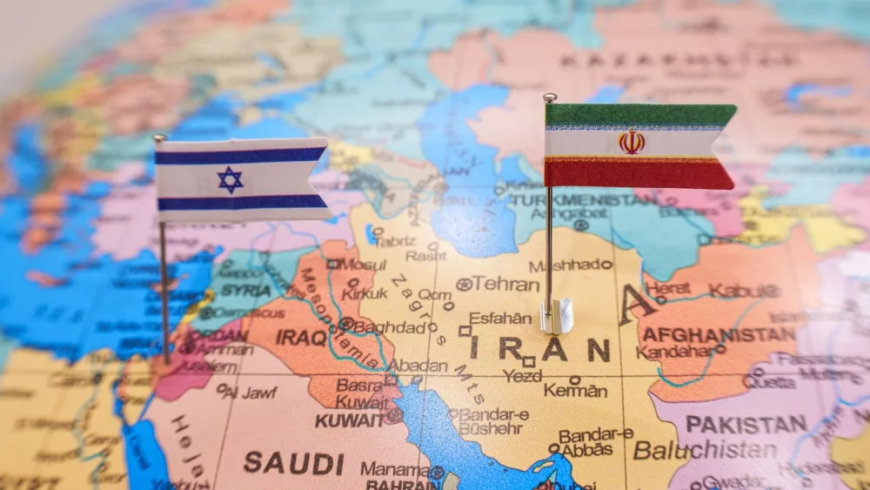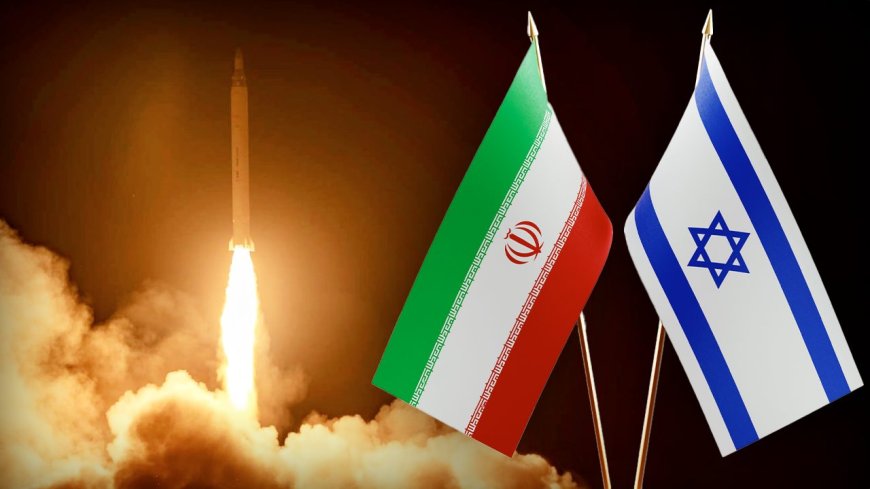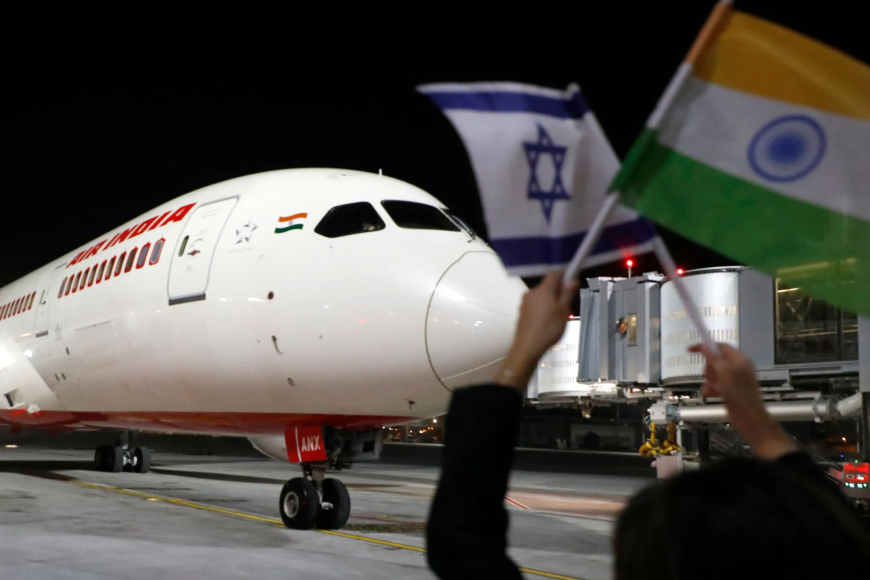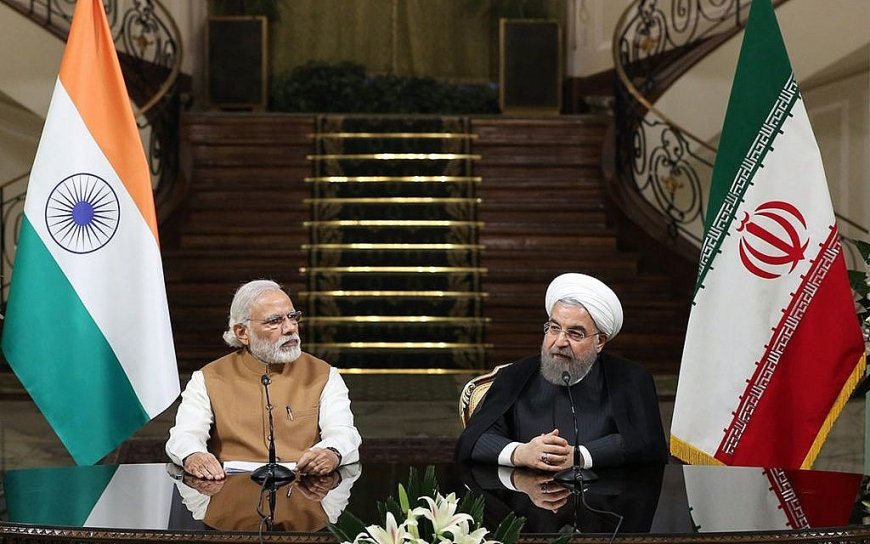India's Call for Diplomacy Amid Israel-Iran Tensions: A Libertarian Perspective on Peace and Balance
India's response to the Israel-Iran tensions emphasizes the importance of diplomacy for regional stability. From a libertarian viewpoint, peace requires a balanced approach that respects national sovereignty and advocates for non-interventionist policies, highlighting the need for dialogue and cooperation.

Introduction: A Diplomatic Balancing Act

As tensions escalate between Israel and Iran, the Indian government has taken a diplomatic stance that calls for restraint and dialogue. This approach is more than just a political gesture; it is a reflection of India's broader role in advocating for global peace initiatives while carefully balancing its international relationships. The Indian government’s emphasis on diplomacy and the protection of civilians highlights a commitment to maintaining stability in a world facing significant geopolitical challenges.
From the viewpoint of the Libertarian Party of India, this move aligns with key libertarian values: non-aggression, individual rights, and peaceful coexistence. In this article, we will explore India's diplomatic stance amid the Israel-Iran conflict and why a libertarian approach could strengthen such calls for peace, ultimately contributing to both regional stability and the protection of human liberties.
India’s Diplomatic Stance: Advocating for Dialogue
India has long upheld the principle of peaceful dialogue in resolving international disputes. As Israel and Iran find themselves in a cycle of escalating threats and proxy conflicts, India's approach has been to emphasize the importance of diplomatic engagement. In international forums, India has consistently called for restraint, seeking a solution that avoids military conflict and ensures the safety of innocent civilians.
This diplomatic path is essential not only for avoiding immediate conflict but also for creating a sustainable foundation for future cooperation. For India, maintaining positive relationships with both Israel and Iran is crucial due to historical, economic, and geopolitical ties with both nations. By acting as an advocate for diplomacy, India positions itself as a responsible stakeholder in global peace efforts, one that avoids the divisive rhetoric so common in international relations.
The Libertarian Perspective: Non-Aggression as a Principle

From a libertarian perspective, the principle of non-aggression is paramount. Libertarians believe that individuals—and by extension, states—should not initiate force against others. The escalation of violence between Israel and Iran is a textbook example of how aggression leads to negative outcomes: economic disruption, human suffering, and violations of civil liberties.
India’s call for dialogue rather than confrontation is thus aligned with libertarian values. Conflict between nations often leads to increased government control, expanded military budgets, and the erosion of civil liberties—all of which run counter to the libertarian vision of limited government and maximum personal freedom. Diplomacy is the path through which peaceful resolution can be achieved without compromising the liberties of civilians, who are usually the most affected during conflicts.
India’s Role in Global Peace Initiatives

India’s call for diplomacy amid rising Israel-Iran tensions also underlines its broader role as a peace advocate in international affairs. Historically, India has been a supporter of non-alignment and peaceful negotiation. By maintaining relationships with countries across the political spectrum, India demonstrates a pragmatic approach that seeks to avoid taking sides, instead focusing on the broader goal of global stability.
The Libertarian Party of India believes that India should continue to enhance this role by being an intermediary that advocates for dialogue, respect for sovereignty, and peaceful conflict resolution. Libertarians emphasize the importance of non-interventionism, believing that countries should avoid unnecessary involvement in foreign disputes that do not directly impact national security. Instead of aligning with power blocs, India’s independent stance could promote lasting peace and avoid the devastating costs of conflict.
Protecting Civil Liberties During International Tensions
One of the most significant impacts of international conflict is the infringement on civil liberties, not just in the directly affected nations but globally. As tensions rise, there is often a tightening of domestic security measures that can lead to surveillance overreach, restricted freedoms, and curtailment of rights, ostensibly in the name of national security. The heightened tensions between Israel and Iran have already led to similar effects across the Middle East, and these repercussions often spread beyond the region.
The Libertarian Party of India advocates for protecting civil liberties as a core responsibility of the government. Calling for diplomacy over military action directly contributes to minimizing the conditions under which governments feel justified in expanding their control over citizens. The preservation of individual rights and personal freedoms must remain a priority, even during international crises.
Economic Considerations: The Hidden Cost of Conflict
Conflict has a considerable economic cost—not only for the nations involved but also for global trade and the economic stability of regions. Both Israel and Iran are critical players in their respective industries, and a conflict between them would inevitably disrupt international trade routes and create global economic instability. India, with its growing economy and extensive trade links, would also be impacted by such instability.
From a libertarian viewpoint, economic freedom is essential for individual prosperity. War not only diverts government funds away from public welfare into military spending but also restricts free trade, ultimately hurting entrepreneurs, small businesses, and ordinary citizens. The Libertarian Party of India supports policies that promote economic freedom and open markets, and by advocating for diplomacy, India can help prevent the costly economic consequences of a protracted conflict.
The Importance of a Neutral Position for India

Maintaining a neutral stance between Israel and Iran is crucial for India to uphold its diplomatic principles and foster an environment conducive to dialogue. Both Israel and Iran have significant strategic importance for India—Israel as a defense partner and source of technology, and Iran as an energy supplier and gateway to Central Asia. Aligning closely with one side over the other could jeopardize India’s interests and destabilize its standing as a neutral force for peace.
A libertarian approach to foreign policy emphasizes non-alignment and neutrality, steering clear of entangling alliances that could lead to unwanted consequences. The Libertarian Party of India endorses this approach, which enables India to engage with all parties from a position of goodwill and fairness, creating avenues for constructive dialogue rather than confrontation.
Promoting Peaceful Coexistence and Diplomacy

Peaceful coexistence and diplomacy are essential not only for stability in the Middle East but also for setting a precedent for how international disputes can be handled. The Libertarian Party of India believes that India, as an emerging global power, should leverage its influence to promote peaceful coexistence as a core principle of international relations.
Diplomatic efforts must also focus on humanitarian concerns, emphasizing the protection of civilians and the avoidance of actions that lead to unnecessary suffering. The party views this approach as an extension of individual rights on a global scale—just as governments should not infringe upon the rights of their citizens, nations should not be allowed to infringe upon the rights of other nations’ populations through aggressive actions.
India’s Strategic Interest in Stability
India has a strategic interest in ensuring stability in the Middle East, given its large diaspora in the region and the vital role of Middle Eastern countries in India’s energy security. Any escalation of tensions between Israel and Iran could have direct consequences for the safety of Indian citizens living in the region and could lead to significant fluctuations in energy prices, impacting the Indian economy.
From a libertarian standpoint, ensuring a stable environment for trade and movement of individuals aligns with the principles of free exchange and individual freedom. By taking a proactive stance in calling for diplomacy, India can help create an environment that is beneficial not only for its national interests but also for global peace and prosperity.
Conclusion: The Path Forward for India and Global Diplomacy
India’s call for restraint and dialogue amid Israel-Iran tensions is a significant step toward ensuring that the region does not spiral into an avoidable conflict. From the Libertarian Party of India perspective, this approach is a welcome move that upholds the values of non-aggression, individual rights, and peaceful coexistence. It emphasizes the importance of diplomacy over military action and the protection of civilians in times of heightened tensions.
The Libertarian Party believes that by continuing to advocate for peaceful dialogue, India can not only contribute to de-escalating tensions but also strengthen its position as a responsible global leader dedicated to the principles of fairness, freedom, and peace. It is essential for the Indian government to persist in its efforts to mediate and encourage open communication channels between conflicting parties, setting an example for how nations can coexist without resorting to aggression.
Only through diplomacy, neutrality, and a steadfast commitment to human rights can India help shape a world that values peace over conflict, freedom over control, and dialogue over aggression.
Frequently Asked Questions (FAQs)
1. Why is India advocating for diplomacy between Israel and Iran?
India is advocating for diplomacy to promote global stability, prevent conflict, and protect civilian lives. As tensions rise, a diplomatic approach is essential for de-escalating potential violence and maintaining peace.
2. How does a libertarian view align with India’s diplomatic efforts?
Libertarians emphasize non-aggression and minimal government interference. By advocating diplomacy, India’s approach aligns with libertarian values that prioritize peaceful conflict resolution and individual rights.
3. What role can India play in global peace initiatives?
India can act as a neutral mediator, fostering dialogue between conflicting parties. Its historical stance of non-alignment and diplomacy enables it to advocate for peaceful solutions without taking sides.
4. How does conflict between Israel and Iran affect India economically?
Conflict can disrupt global trade routes and increase energy prices, affecting India’s economy. Diplomatic efforts help maintain stability, ensuring uninterrupted trade and economic growth.
5. Why does the Libertarian Party of India support non-interventionism?
Non-interventionism prevents unnecessary entanglement in foreign conflicts, which can lead to increased government control and military spending. It aligns with libertarian values of limited government and individual freedom.
6. How can technology and open communication contribute to peace?
Technology facilitates transparent communication, and open channels help prevent misunderstandings that could lead to conflict. Diplomatic dialogue supported by technology can lead to better mutual understanding and peaceful resolutions.
What's Your Reaction?

















































